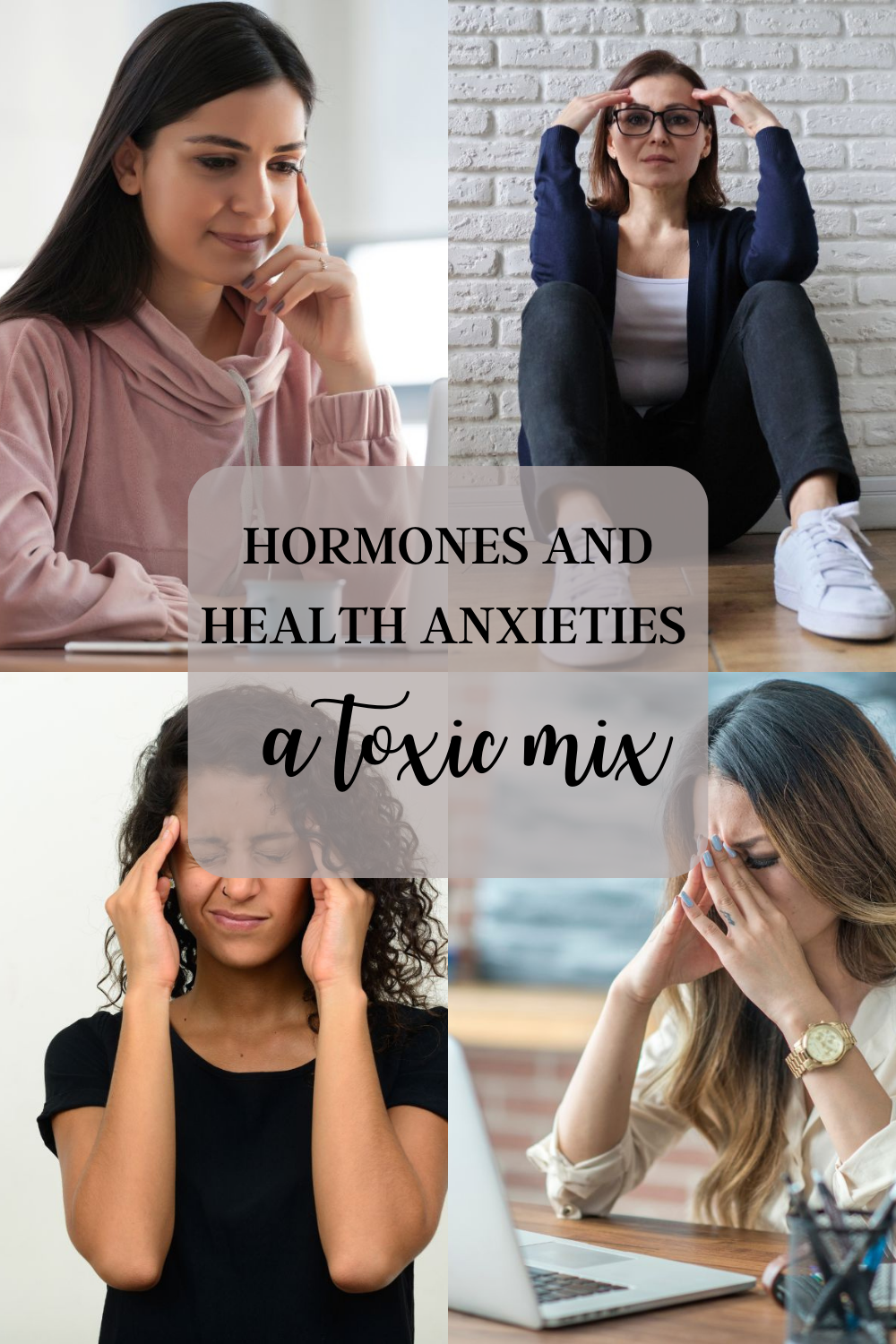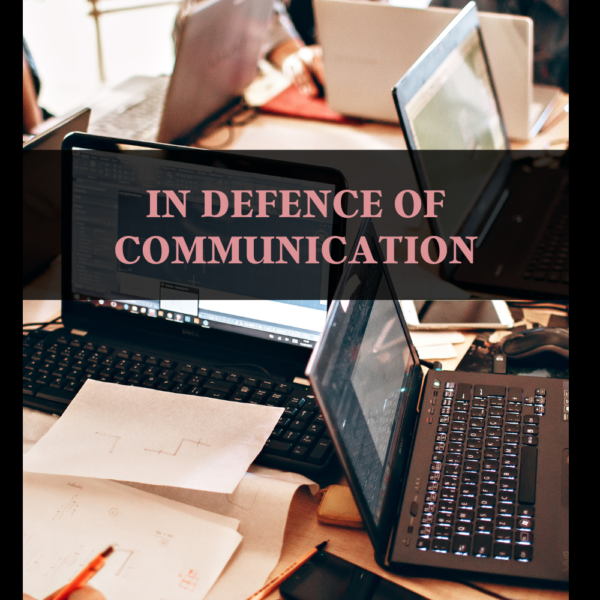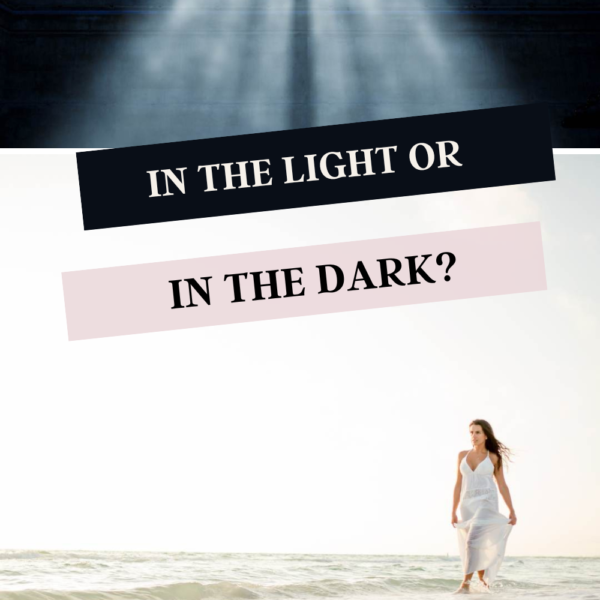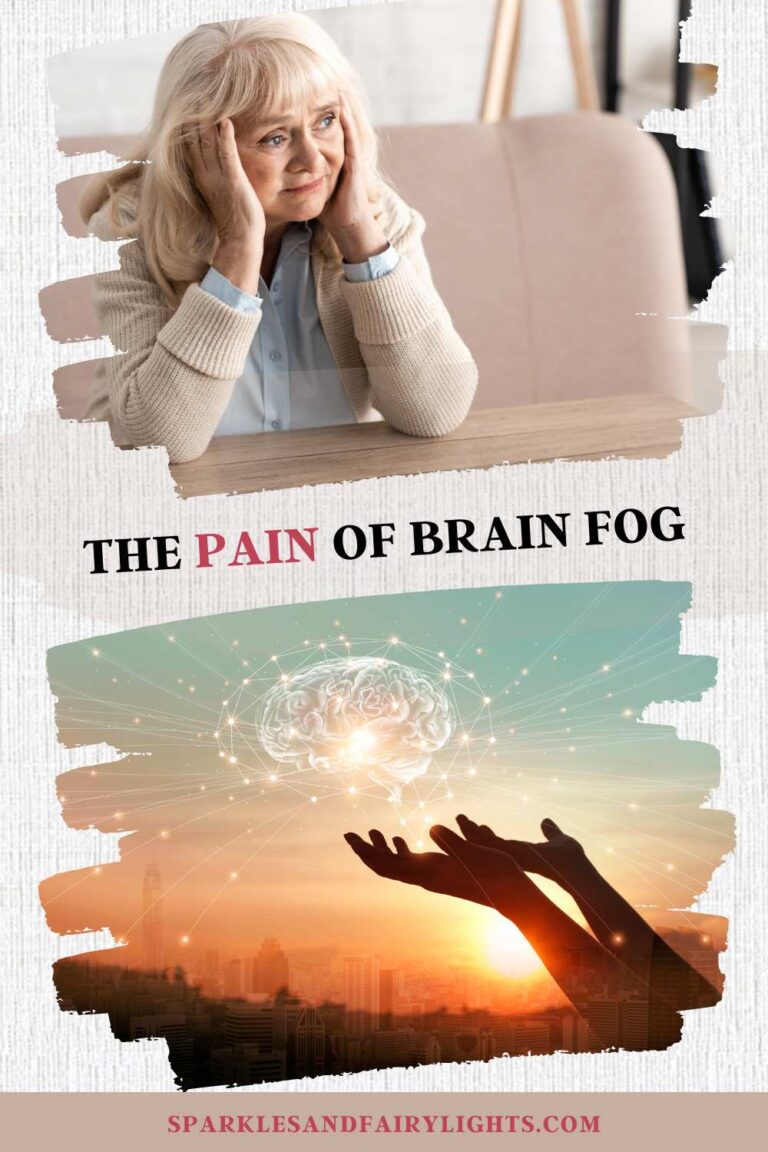Hormones and health anxieties: a toxic mix
Health anxieties
I tackle the issue of health #anxiety and it feels like a catharsis. No one can truly understand how you feel those first few times when you have brain fog, when you start to panic and wonder if something like early dementia could be setting in. All the more so after having witnessed a loved one battle it, and knowing only too well how debilitating it can be. Few understand that moment when you experience internal vibrations out of nowhere or blurry eyesight that feels like it could signal the end of a career.
It is why I am determined to spread awareness among #women who are not in the know and whom, I believe, will suffer untold #heartache, and spend a lot of money, just figuring out what is troubling them. Pertinently clear as you can hear, my anxiety about my #health while grappling with fluctuating hormones has driven me to speak out and, in some small way, help other women who may befall the same fate.
As I googled my own symptoms in the middle of the night, a regular pattern I followed to avoid feeling alone, I connected with the stories of women in the same boat and heard about remedies and generally just felt understood. It also helped that the light was on and I did not have to lie awake with my own scary thoughts and nasty headaches. I found a few public forums, but joined the UK-based The Latte Lounge to get support from a club where you had to be 40 to get in, a new of state of affairs to be sure and I thought quite hilarious at the time.

Being part of a community
I still belong to the Facebook community and I feel like it helps me to understand the plight of the women in the UK a bit better, but I also feel that they have made much progress in terms of awareness and pushing for better legislation for women in menopause. However, on the topic of The Latte Lounge, I want to take a moment to highlight the fact that the website has a ton of resources including an article on the 34 generally accepted symptoms of perimenopause and it is of course not all, but the accepted norm. I quote:
“After the age of about 40 our hormone levels (oestrogen, progesterone and testosterone) start to decrease and fluctuate and women enter into ‘perimenopause’ – the phase of life leading up to menopause. These hormonal changes lead to a wide range of symptoms – with 34 symptoms most commonly identified as part of this phase.”
Menopause Matters is also a fantastic resource for women needing to delve into the topic and its Instagram page is a delightfully fun take on it. I believe women just find an oasis there, a place to rest, have a huge belly laugh and recharge in order to deal with what they are facing.
I am sure that you get the picture and understand why it is no wonder that perimenopausal women are stressed out; our bodies are under siege. All of a sudden we are fretting about new allergies and/or foul body odour that seems to rear its head at the most inappropriate of times because we had no idea it was even a thing. Then other mind-blowing weird symptoms start literally stopping us in our tracks; terrifying internal vibrations, unsettling electric shock sensations and distressing random shaking as well as burning mouth, pounding headaches, hot flushes and dental issues are all a cause for concern.
Your brain is befuddled by brain fog. You don’t know where your keys are and you are petrified of driving. More often than you’d like to admit, feelings of paranoia and irritation are becoming constant companions. Your frazzled state is making you feel out of control and, to boot, you are gaining weight and losing sleep. Thinning hair and itchy skin are adding to the stress and more and more you find yourself feeling awkward. Additionally, restless legs, night sweats and possibly more stiffness than you can remember, are all making you feel ratty and truly rattled at a time when your career, family and life commitments are sky-high.
Women report losing their confidence and not being able to trust themselves or their memories. Once rock-solid women start to doubt themselves in minor day-to-day activities and then anxieties about their jobs reach stratospheric proportions. Is it in any way a surprise that women are experiencing anxiety about their health? It shouldn’t be.
Standing as a testament
At this juncture, I would like to introduce women who stand as a collective testament to why this is such an issue. We kick off with Katie Taylor, founder of The Latte Lounge, hear her poignant tale:
“The night of my diagnosis I came home and cried with relief on my bed that I wasn’t going mad and there was an explanation for everything I’d been feeling but I felt really, really angry at that time that my doctors had misdiagnosed me and I had wasted four years of precious life not really living.”
Katie Taylor, founder of The Latte Lounge
For the other sufferers on The Latte Lounge page, her story is not unique and that is why she is regarded as such a crusader for the cause.
Here is a brief snapshot of her journey:
At 43, she started to struggle with low mood. Her usual bubbly, outgoing, capable self was slowly being replaced with low energy, brain fog and anxiety. With insomnia ensuing – she spent another four years functioning on three hours of sleep a night. She had other symptoms too and the mother of four shared that eventually it was concluded that she was probably stressed and depressed due to her busy life and full-time job. Time off was suggested and it was initially the reason she quit her job. At that point, she went on antidepressants but they did not bring any joy; they just made her feel numb.
She goes on to explain that, “I was sent to a heart specialist for my palpitations, which ruled out a heart condition. A neurologist, which ruled out early onset dementia. A rheumatologist for my joint pains. In fact I went back and forth to different doctors and specialists over the years about all the various symptoms I was suffering from, which made feel like I was either going mad or was a hypochondriac.”
Latte Lounge
Her story is so compelling because she is not alone; it is a story I have heard in the echo chambers of other forums as well. It is why Latte Lounge has drawn so many others struggling with the same thing. Please share her details with others you know who may be displaying these symptoms without any clue what they are dealing with.
In my opinion, I see a bit of a miracle in her story – a touch of the divine I would say – as it was her father, a surgical oncologist who specialises in breast cancer, who first had an inkling that her symptoms were hormone related. A blood test was done and oestrogen levels were said to be “on the floor” and was told that it was perimenopause. Candidly, she admits that, “It was the first time I’d heard the word perimenopause.”
Katie is now such a powerful warrior for the cause, has gathered other experts around her expressly to meet the burgeoning need of women who desperately need help and find a welcoming refuge to do so. Oh yes, I neglected to say that she is now in peachy health.
Experience that resonated
Another story that impacted me was that of blogger, Lisa of The Sequinist. Her post, My So-Called Perimenopause, just resonated with me at the time, and I distributed it among my friends so as to keep them in the loop. Here is why.
“However, right now my brain is so faulty that I don’t know what important thing I’ll forget next, but I know for sure that it will happen. The anxiety I can conceal from other people, but the brain fog is glaringly obvious, and it makes me feel ashamed.
“This brain fog has really shaken me, perhaps even more than the anxiety. It has affected my confidence and my self-perception. Being clever, having a good memory, and not doing stupid flaky things is part of my identity. It is who I am, who I’ve always been. I am a person who worked on trading floors for 20 years, trading bonds and currencies out to four decimal places and never ever made a mistake. Oh sure, I made bad decisions or called the markets completely wrong, but in my whole career, I never made a single ‘human error’ kind of mistake.”
Lisa of The Sequinist – Blogger
“Another perimenopause symptom I have been experiencing is a bizarre all over physical numbness. My whole body feels dizzy. It comes and goes, but it is a peculiar out-of-it feeling, like my whole body is blurry and fuzzy. I have a disconcerting vibrating sensation that there are two copies of me which aren’t aligned with each other and are trying to get in sync.
“For the past few months, I have genuinely wondered whether I was going crazy. Or developing dementia. Or both. I’ve had to fabricate imaginative excuses for my extreme forgetfulness. At times, I’ve felt a bit fraudulent for making up socially-acceptable reasons to wallpaper over things which I was sure were signs of my spiral into insanity.
She continued, “Last year, my friend Michelle wrote a post about menopause and perimenopause, and I went back to re-read it. I remembered her mentioning anxiety attacks and describing the weird, fuzzy, ‘out of body’ feeling that I am having. I described my symptoms to her, and she immediately knew that I was in perimenopause.
“Once you enter actual menopause, most of these symptoms go away. Now that I’ve done some research, I am so relieved to find that I am just perimenopausal and not actually going barking mad. In fact, all of my symptoms are quite common, they’re just not the ones people talk about. It seems hot flashes are socially acceptable to discuss but the rest aren’t.”
Unintentional inspiration
When I read it, part of her story felt as though it was my story, I felt like giving her a huge hug. Like someone knew what I was feeling and going through, and had articulated it perfectly. Her story is partly my inspiration for wanting to talk about it too. Perhaps, someone will remember that I was advocating for increased awareness on the topic of perimenopause and come back to something I wrote and find in it the balm for the soul that she had unwittingly given me. Now that would make my day.

And now on to an absolute expert in the field. I have quoted her extensively in a previous episode and will do so now again, because I think what she has to say is that important. Dr Lisa Mosconi, a world-renowned neuroscientist, with outstanding credentials made some profound statements in her Instagram post of 21 October 2021.
Particularly helpful excerpts highlight the need to keep telling others about this as well. Here goes: “When people talk about menopause, it’s usually about the discomfort of hot flashes, or perhaps sleepless nights. But there are more mental and emotional challenges that can be set off by the hormonal chaos of midlife. Anxiety, depression, brain fog, exhaustion, you name it. Symptoms can be so disruptive that many women are under the impression (read, terrified) that they are going crazy. Believe it or not, this is a very common reaction, one that needs to be met with facts and reassurance.
“The problem is that there is no education or culture around menopause, which in turn means that too many women just don’t know what hit them! They feel blindsided by their bodies, let down by their brains, and failed by their doctors who also may not realize those symptoms are ‘just’ menopause. Over a third of women going to their GP with symptoms of menopause end up with a prescription for antidepressants!
“Bottom line: We have been taught to fear our hormones and doubt our brains. This is unacceptable and due for a change. Women deserve to experience menopause, and any other aspect of their reproductive life!, equipped with facts and information — and free of fear, shame, or secrecy.”
Dr Lisa Mosconi, a world-renowned neuroscientist
There is thus some cause for concern when women are diagnosed with anxiety as a first port of call even though they are literally worried sick and the cause of the anxiety is their health and the physical changes that leave them feeling agitated, and quite often completely upend their lives.
Eileen Durward, Menopause Advisor, shared really useful nuggets in an A Vogel article, I will, once again, quote invaluable excerpts. She said that “Anxiety often tops the list as one of the worst symptoms and it’s also one of the most common ones!” She continued, “Over the years I have found that anxiety is probably the second most common symptom in perimenopause and menopause, behind hot flushes and night sweats.”
Plain old anxiety
That presents as a conundrum of sorts too. Anxiety is a huge symptom in of itself too. She echoed what the other women mentioned have said: “They [women] may even get to the point where they feel as if there are having a nervous breakdown. I get so many women telling me that they think they are going mad or crazy or they’re just losing the plot.”
In addition, according to a Medical News Today article, other changes related to menopause can cause anxiety. “For example, 40-50% of people experience sleep disturbances or insomnia during the menopausal transition. Sleep disorders can cause anxiety, and anxiety can cause a person to sleep poorly.” For me, this clearly illustrates a cycle that many find so hard to break.
The article proceeds to inform as follows: “The problem is that when you are going through perimenopause, as you get towards a period, your oestrogen can fall really quickly, so your mood can go from up to down literally within seconds and that can then continue for much longer because it is much more difficult for your hormones to rebalance at this stage.” There are many other contributing factors, of course, but I will leave you to marinate on these this time.
If you have benefitted from this at all, please leave a comment to tell me how.
Latest posts
Water: sensuous luxury for the soul
For me, life’s little luxuries are those little pleasures or comforts that make life worth living; not necessarily are these the most expensive items money can buy, though often they are, in a sense, priceless. I make the case for…
Confidence upended by a gift bag
A while ago, I decided to embellish a plain gift bag to really show my appreciation to a friend who was celebrating a personal milestone. Unfortunately, despite high hopes for its aesthetics, the end result was a disappointment, nearly succeeding…
In defence of communication
I was flabbergasted one day, actually completely blown out of the water, dumbfounded and rendered completely speechless when the idea was bandied about that Corporate Communication as a discipline was not VITAL. Is Communication vital? As a Communication Science graduate,…
All hail the King
King Charles III was officially and regally crowned king in all his glory and power this past Saturday. In the light of all things balance, I will tread a fine line between the loyal royalists on the one hand versus…
In the light or in the dark?
I have taken the stance that you need to know the hill you are prepared to die on as it not only dictates other important, black-or-white life choices; it also provides the framework for the limitations required to lead a…
- The human value and capacity driving copywriting in 2025 - March 6, 2025
- Authenticity, professionalism and hope in a curated world - February 6, 2025
- Authentic epiphany watching the trailer for “With love, Meghan” - January 27, 2025













